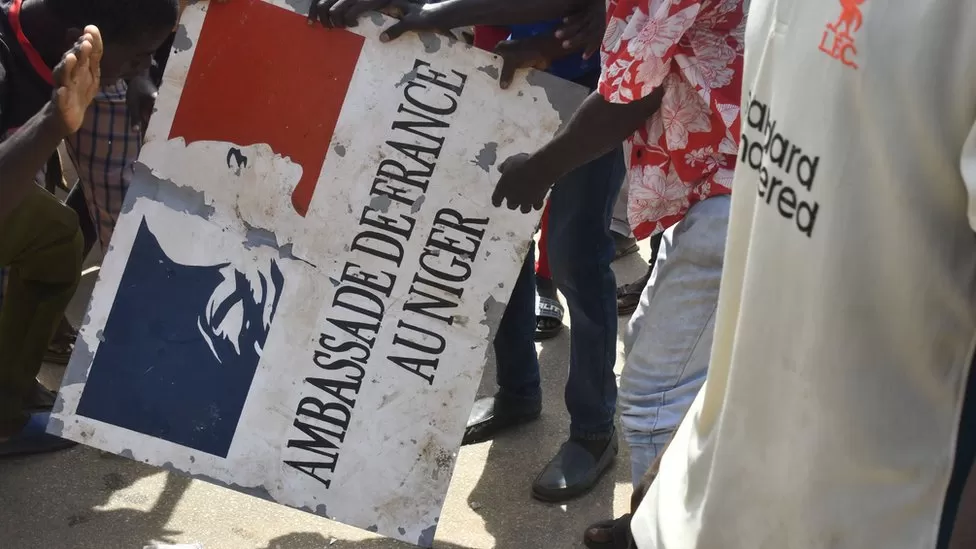France defies ultimatum for ambassador to leave Niamey

France’s ambassador has remained in Niger despite being given a 48-hour deadline to leave the country last Friday, French President Emmanuel Macron confirmed in a defiant speech.
Due to rapidly deteriorating bilateral relations, Ambassador Sylvain Itte was ordered to leave.
However, the president “applauds” Mr Itte for staying put hours after the coup leaders’ deadline had passed.
Earlier this month, the junta overthrew the elected president of Niger.
As he addressed ambassadors in Paris and those listening remotely, Mr Macron said: “France and its diplomats have faced particularly challenging situations in some countries in recent months, ranging from Sudan, where France has shown exemplary leadership, to Niger right now.
Your colleague and your colleagues who are listening from their posts deserve applause.”
France and many of Niger’s neighbours, including the West African regional bloc Ecowas, condemned the coup that toppled Niger’s President Mohamed Bazoum on 26 July.
During Friday’s announcement of the French ambassador’s 48-hour deadline for leaving Niger, the junta said Itte had refused to meet with the country’s new leaders after the coup.
On Sunday, thousands of Nigeriens demonstrated near the French military base in Niamey to support the coup.
Several protesters held signs calling for the departure of French troops, while footage posted on social media appears to show local Muslim imams leading prayers outside the base.
Mr Macron defended French military presence in Niger in Monday’s speech, stating that without French intervention, the country would “no longer exist”.
Without France, Mali and Burkina Faso would have suffered the same fate, Mr Macron said.
Until last year, France fought Islamic insurgents in former French colonies Niger, Mali, Burkina Faso, Chad and Mauritania.
Around 5,500 French soldiers were stationed in African countries at its height.
The anti-French sentiment and protests in the region, however, have intensified recently, with some opponents calling France’s intervention a colonial act.
Some have noted that the troops have not been able to defeat jihadists, whose deadly attacks on communities continue.
